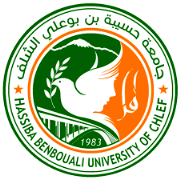Ideology and Translation
DOI :
https://doi.org/10.70204/jlt.v2i1.239Mots-clés :
Ideology, translation, - sociology, cultureRésumé
A significant problem with the study of ‘ideology’ in any discipline is its definition and scope. First used in 1796 by Count Destutt de Tracy to refer to a new rationalist ‘science of ideas’, from the nineteenth century onwards ‘ideology’, from the French idéologie, came to acquire a negative Marxian sense of illusion nor false consciousness (the misguided way of thinking that characterizes others, such as the ruling classes, for example), and this negative sense has had a significant impact on the way it was studied (Williams 1983: 153–4). Although more contemporary uses of the term in the humanities cover neutral phenomenological as well as negative senses, the word ‘ideology’ remains problematic, as emphasized by Woolard (1998: 8), who states that ‘arguably, even the most doggedly neutral social-scientific uses are tinged with disapprobation, the truly neutral stance more often encoded by the choice of other labels such as culture, worldview, belief, mentalité, and so on’
Téléchargements
Publiée
Versions
- 2024-03-19 (2)
- 2024-03-19 (1)










